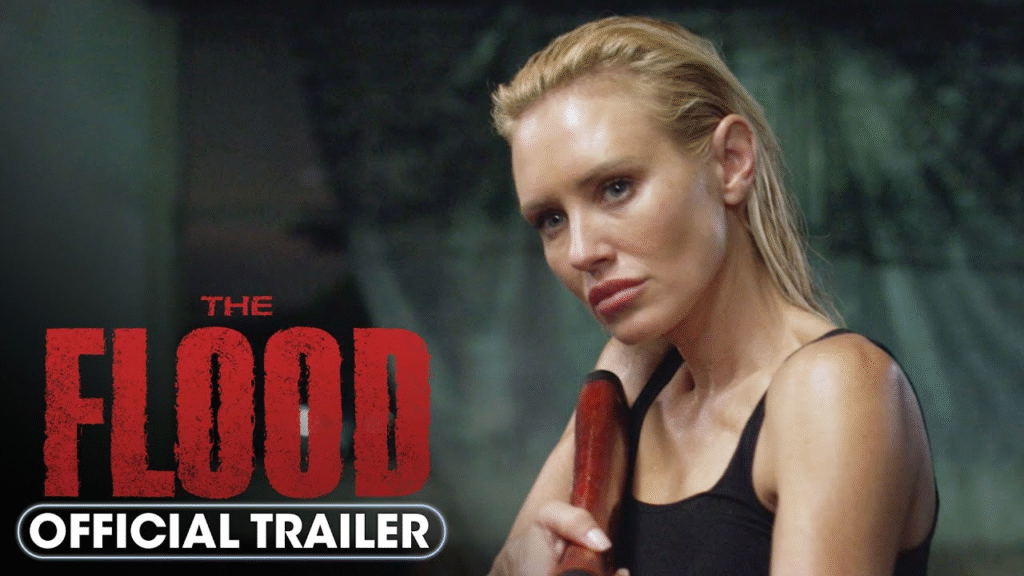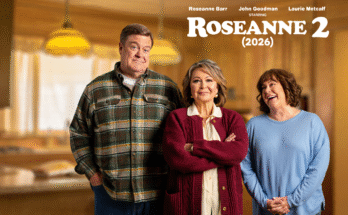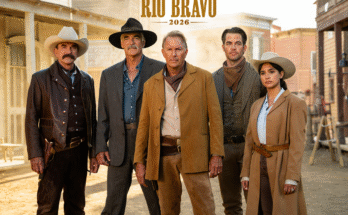In The Flood, director Mia K. O’Rourke doesn’t just submerge her characters in rising waters — she drowns them in guilt, memory, and the unbearable weight of human connection. This quiet yet harrowing British psychological thriller trades spectacle for substance, and in doing so, delivers one of the most emotionally resonant survival stories of the decade.

Set in a remote English village consumed by an unrelenting deluge, The Flood opens with torrential rains and broken levees — but the true disaster unfolds slowly, as a group of strangers becomes trapped inside a crumbling town hall, cut off from the world. The electricity flickers. The water creeps up the walls. But the real threat is internal: secrets, regrets, and the quiet kind of rage that only surfaces when escape is no longer an option.
Emily Beecham gives a career-best performance as Marianne, a woman whose past mistakes hover just beneath the surface like submerged ruins. She doesn’t say much at first — her silence speaks louder than words — but every glance, every hesitation, hints at emotional damage long before the floodwaters expose it. Her presence anchors the film with equal parts fragility and steel.

Jessica Barden and Alice Lowe round out the central trio with chilling precision. Barden plays Leah, a defiant and impulsive young woman running from both the rising water and her own guilt, while Lowe brings raw, maternal exhaustion to Ruth, a woman whose calm demeanor begins to fracture under the pressure. The dynamics between these women — initially cold and guarded — evolve into something tender, brittle, and volatile. It’s not about trust; it’s about necessity.
O’Rourke’s direction is minimalist but evocative. She lets silence do the heavy lifting. The camera lingers on soaked wood, trembling hands, muddy shoes left on flooded stairs. Flashbacks are woven in with ghostly elegance, not to explain the past but to haunt the present. Time becomes a blur — just as it does in trauma.
And The Flood is, ultimately, a film about trauma. Not in grand, melodramatic strokes, but in the way people compartmentalize, deny, or weaponize their pain. The rising water outside mirrors the emotional overflow inside each character. Conversations are half-finished, accusations hinted at but not voiced — until the pressure breaks.

This is not a movie about heroics. There are no last-minute rescues, no triumphant survival montages. When someone goes under, the camera doesn’t cut away. When a character breaks, it’s quiet and ugly and real. And it’s in those moments — a confession whispered in the dark, a decision that damns one to save another — that The Flood finds its soul.
The film’s pacing is deliberately slow, and for some, it may feel suffocating. But that’s the point. You are meant to feel trapped, like the characters — not just physically, but emotionally. The flood is not just outside; it is inside them, and us.
By the end, when the waters recede and the silence returns, you’re left not with relief, but reckoning. What did they survive? And what didn’t?
Verdict:
The Flood is a haunting meditation on grief, guilt, and the quiet horrors that follow us even when the rain stops. With stunning performances and an unflinching gaze, it proves that sometimes, the greatest disasters are the ones we carry within.
“Some storms you can’t outswim. Some you carry with you, forever.”



